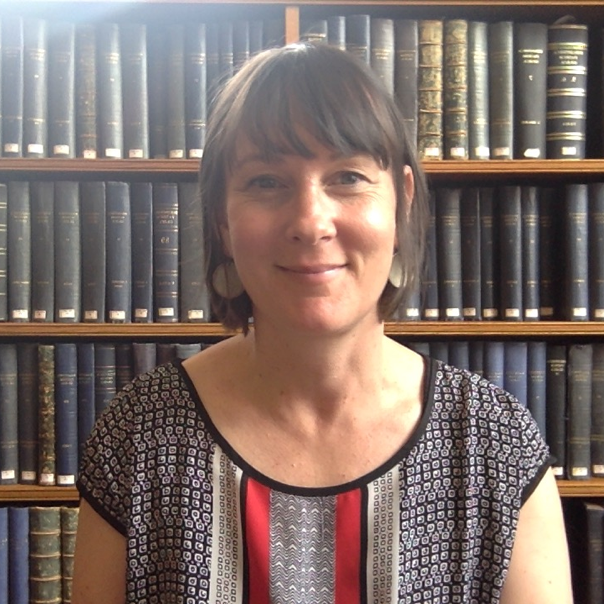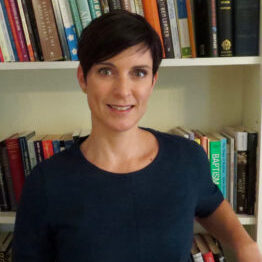Episode Transcript
[00:00:05] Speaker A: You're listening to by the well, electionary based podcast, preachers recorded on the land of the Warunderi people.
I'm Fran Barber.
[00:00:18] Speaker B: And I'm Robin Whitaker. Hello.
[00:00:20] Speaker A: Hello. And this is the first week of Lent.
[00:00:23] Speaker B: Yes.
[00:00:24] Speaker A: And Robin, you and I are going to be talking about Genesis nine, verses eight to 17, psalm 25, verses one to ten, and mark one, verses nine to 15.
And we're going to kick off with the gospel gospel.
But before we do, a couple of words about Lent, which we're all super familiar with being preachers, but just a reflection I had this week while I was preparing some work for another part of my ministry and thinking about the popular understanding and to a great extent correct understanding of Lent as a penitential season.
We're following Jesus'journey to Jerusalem and the destination of the garden and so on.
And then I came across this little video from Rowan Williams. It was a bit of an accidental discovery, and I think it's from a few years ago, and he was doing a little account of Lent for those who have no experience of the church. And I was just struck by in the history of Lent, which sort of, it developed really from the very early practice that people came to faith and were baptized at Easter. That was the logical time, the time of new life and resurrection.
And that lent, the practices of Lent associated with the 40 days in the wilderness and so on, and Jesus temptation all developed. And there was catechesis, there's learning, there's preparation, there's fasting, and all of that developed over the years. But actually it was the vision of new life and resurrection and baptism that was at the forefront. And he talked about it's not 40 days to be melancholy and gloomy, which I found.
Both those things I've just talked about, the penitentialness and the going to the garden and the cross, it's all obviously true, but it is a bit about the emphasis and what we place on it and how we capture Lent in our preaching and in our worship leading generally.
[00:02:30] Speaker B: I think that's really helpful, Fran, because I think the know, we tell ourselves this is a penitential season, and yes, it is, but to what end? So maybe as preachers, particularly if you're a regular preacher in your congregation and you're planning out know, one of the big questions to think is, what is this season for? I know a lot of churches do Lenten studies, so there is perhaps there's a memory that this is a season of catechism. It's a season of actually learning about our faith and if we're penitential and a bit more reflective than usual, it is for something, right? It's not beating ourselves up for the sake of beating ourselves up. That's not true penitence. It's about examination so that we would grow in love and faith and discipleship.
[00:03:16] Speaker A: And in a very real sense, people, whoever they are, even in the pews and those beyond, are not going to hear the message if it is all gloom and doom. And the context needs to be the good news of salvation from which or within which you then respond and see the call and the need to bow before God in reflection of yourself and God and so on. So, anyway, a little Lenten reflection of reflection.
[00:03:47] Speaker B: Speaking of good news, that's how Mark's gospel begins. Fran, did you like that awkward segment?
[00:03:51] Speaker A: I did.
Sheer brilliance. That was very smooth.
[00:03:58] Speaker B: So our lectionary picks up in verse nine.
And so far in Mark, we haven't had a lot. We've had an announcement of the good news of Jesus Christ, a quote from the prophet Isaiah and the appearance of John the Baptizer, which.
[00:04:15] Speaker A: What more do you need?
[00:04:17] Speaker B: A birth story? No. Well, quite like according to Mark, so do I. Yeah. And then in the section we have today, these six verses, we are going to get baptism, temptation and the beginning of ministry. And in typical Mark and style, these are all condensed. It's super dramatic. Then this, then this and this. We don't get details.
[00:04:36] Speaker A: I love books like that.
Good for holiday reading. People are going to come at me now, I don't really like Jane Austen because I feel like that things don't happen like that.
[00:04:45] Speaker B: Wash out your mouth, Fran. You're talking to a Jane Austen fan. I know, but generally I'm sympathetic. That excess of description is simply annoying.
We've got three short scenes, and in one nine, it begins with Jesus. We simply get him located as a man who's come from Nazareth of Galilee, and he was baptized.
Now, that seems like a fairly straightforward narrative point, but if we've read the few verses before, John is baptizing a baptism of forgiveness for sin.
We get no qualifiers around this, just that Jesus comes and is baptized like everyone else for the forgiveness of sins, which immediately raises a whole bunch of questions.
[00:05:33] Speaker A: Well, and we've mentioned this before in our conversation on here in the past, but that baptism in Judaism, like, these are jewish people here.
[00:05:41] Speaker B: Yeah. This is washing. Washing. Right.
[00:05:43] Speaker A: Washing. But just in terms of those of christians who. Those of us who just think we've invented these practices out of forgiveness. Yeah. Out of thin air.
[00:05:55] Speaker B: No, that's right. So it's very jewish setting. This is that water purification rituals are part of the practices.
And there's two things to note here.
One is that there is already a mechanism for the forgiveness of sins within Judaism. In fact, there are many of them, and this is just one.
The washing is one of many that include sacrificial systems and other things. So forgiveness of sins already existed before Jesus. Just fyi, Christian.
[00:06:25] Speaker A: It's sort of one of those things that's obvious, but that I know we kind of forget.
[00:06:28] Speaker B: Right.
And two, and Matthew's gospel will clear this up because it's clearly a bit of an issue.
Jesus receives the same baptism as everyone else at this point. So Mark is not really interested, or it doesn't occur to him to be interested in the question of whether Jesus would as a sinner or not and why he needed forgiveness. Matthew, that will obviously bother because he adds a whole narrative about why are you coming to me for baptism? You should be baptizing me. So he's aware that this could be a theological problem. But Mark doesn't really care.
[00:07:03] Speaker A: I like that he doesn't care.
[00:07:05] Speaker B: And if I could say one more thing before handing over to you, Fran, I think what everything I just said is not the main point. The main point comes next with the heavens being split open. And this word here is schizomae like.
[00:07:19] Speaker A: Split struck me and echoed in my mind, the curtain of the temple breaking into.
After Jesus died. After Jesus dies. So there's these illusions here of that already.
[00:07:35] Speaker B: And last week with the transfiguration, we had texts where that sort of so called divide between heaven and earth was being breached consistently. Right.
[00:07:44] Speaker A: It wasn't quite as violent as this. I mean, it was chariots. You said at the time it was military. Yes, but somehow, even with the greater number of words and imagery in, that didn't seem as violent as this.
[00:07:57] Speaker B: No, this seems like a rending of. And of course, if we think back to Genesis one, the language there of a firmament that divides the waters above from the earth. So heaven and earth is thought of as a kind of barrier. So this is very much playing on that imagery that the barrier has been torn in a way that maybe can't be repaired.
[00:08:17] Speaker A: Well, both can't be repaired, but it's a new creation that is coming.
[00:08:20] Speaker B: Yes. So that does a lot of symbolic work for who Jesus is as kind of breaking down that barrier. And it also puts us firmly in apocalyptic territory. That division between heaven and earth is broken open.
And of course, the divine voice then speaks, and we get this first utterance of three in the gospel that Jesus is God's son, the beloved.
[00:08:46] Speaker A: Beloved, yeah. A phrase we heard last week at the transfiguration.
[00:08:51] Speaker B: So if we were reading the text in order, we'd get there again in nine chapters. But in our lectionary, we've already heard it once, and now we hear it again at the very beginning here.
Anything else you noticed in that scene?
[00:09:03] Speaker A: Pretty much. We've picked up every wall.
[00:09:06] Speaker B: It's only three verses. There's only so much so.
[00:09:08] Speaker A: I don't think anything else. I mean, the dove imagery would become the spirit's presence. The spirit's presence, yeah, but no, the next bit for me, the testing, so to speak, the driving into the wilderness by the.
You know, we often, I think, unconsciously or not, when we evoke the Holy Spirit.
Well, I'll speak for know. I pray that the Holy Spirit's creative presence moves through our work today. I might pray when we're at a committee meeting or something like that.
I mean, I need to start praying that the Holy Spirit will drive.
Know, that's a domestication then, that.
[00:09:53] Speaker B: Yes, yes. We want the gentle movement of the.
[00:09:56] Speaker A: Spirit, not the violent driving one.
[00:09:59] Speaker B: Yeah.
[00:09:59] Speaker A: So I think that's a sermon. There you go, folks.
[00:10:02] Speaker B: Yeah, that could. And we certainly don't want the spirit driving us out into the wilderness. Right. We want the gentle spirit that will just come and do make the things happen that we want.
[00:10:11] Speaker A: And also for Mark, what's clear here is that wilderness becomes the focus, not the temptation. So that mark, and I mean, Matthew and Luke, there's a conversation.
[00:10:23] Speaker B: Yeah. We get the specifics of those temptations.
[00:10:26] Speaker A: You know what they're going to be. Whereas here.
[00:10:30] Speaker B: Yeah, here, it's really that he's in the wilderness. Yes. He's being tested by Satan, who's an adversary figure. Satan.
And he's with the beast. So this is a place of wildness.
[00:10:42] Speaker A: Yeah. It's not a silent retreat.
[00:10:43] Speaker B: No.
[00:10:44] Speaker A: In the wilderness. No.
[00:10:46] Speaker B: But the angels waited on him.
That's such a little an aside that we can skip over. But there's something about even in the wilderness places surrounded by wild beasts and feeling tormented by things, whether physically or mentally or anything else, the angels awake, like God is present there as well.
[00:11:11] Speaker A: I did read a little note in one commentary. I was looking at that. It's Isaiah 34, verses eight onwards. Wild animals and demons are said to be in the wilderness.
[00:11:21] Speaker B: Yeah.
[00:11:21] Speaker A: I just found that as someone who doesn't know the scriptures quite as well, as you, I found that really helpful. It's another tiny connection here.
[00:11:28] Speaker B: Yes. Well, again, Mark is really into the sort of cosmic, apocalyptic setting. So we're going to have an exorcism be the first miracle. So Jesus is going to butt up against demons and evil forces everywhere.
So if we enter into Mark's world and just accept that on its own terms without trying to explain it away, then. Yeah. The presence of Satan and demons and wild animals out in the wilderness is normal. Right. Well, for a scary place.
[00:11:57] Speaker A: And he didn't invent that if it's in.
[00:11:59] Speaker B: No, no, exactly. That's typical.
[00:12:01] Speaker A: Yeah. So, tested by Satan. Is that how we pronounce it properly?
[00:12:05] Speaker B: The Satan? Yes.
[00:12:06] Speaker A: Adversary.
[00:12:10] Speaker B: It's a hebrew word. Like this is a heap like we find the Satan in job.
[00:12:17] Speaker A: Yeah. When I'm thinking of preaching, I always come up with way too big issues to try to tackle. But seriously, there's another serum.
What is it about Satan language? We don't use it in our tradition. But what are the pros and the cons of describing and understanding evil in our world in that way?
[00:12:38] Speaker B: Well, yeah. And even the language of testing or tempted. The NRSV has tempted. The word could be test tried, like a time of trial.
So, in the Lord's prayer, we pray, do not lead us into temptation. It's very similar phrasing of being driven by the spirit. So, weirdly, the prayer Jesus teaches is the antithesis of this. We pray, don't lead us in exactly the way. Jesus. Right.
And I don't really know where I'm going with that, but it's just an interesting parallel. But we could play with.
[00:13:16] Speaker A: I think I'd say it's done on our behalf at that fundamental level or.
[00:13:21] Speaker B: That we don't have to do everything Jesus did to be followers of Jesus.
[00:13:24] Speaker A: Like he died for us, put on crosses.
[00:13:27] Speaker B: Yes, but, yeah, we could. I think you're right. There is a whole sermon just on those middle two verses of wilderness experiences and feeling sort of battled by the world and under attack or whatever language you want to use. And what language do we use and why? So in Mark's day, that's Satan, but what language do we use? And if we're uncomfortable with the language of evil, why?
[00:13:57] Speaker A: Luck. That's what I mean about. I think that's a really.
[00:14:00] Speaker B: That's sermon number two there.
[00:14:02] Speaker A: Off you go, people.
[00:14:03] Speaker B: What's the third one, Fran?
[00:14:06] Speaker A: Well, the summary of the gospel in verse 15 is your third one. It is.
[00:14:12] Speaker B: We didn't tee that up, but that's exactly the answer I was hoping for.
[00:14:16] Speaker A: The time is fulfilled and the kingdom of God has come near. Repent and believe in the good news.
[00:14:21] Speaker B: Yeah.
So we've got, again, Mark is so brief, but we've got massive events that have happened. John's been arrested, Jesus comes back, presumably from the wilderness, and his whole ministry is framed as proclaiming good news. So back to your point right at the beginning, Fran, if we're not proclaiming good news, even in the midst of Lent, what are we doing?
This has got political language in it. Like, we could equally translate this.
The time has come or come near. The empire of God has arrived.
The reign of God has arrived for kingdom, which is announced as good news.
What do you think? The resonant. How would you preach that apart from just saying that? Because I don't know what that.
[00:15:14] Speaker A: Well, again, the call to repent in a comfortable western context, where largely you're led to believe that you're fundamentally good and you just need to be reminded. To be nice sometimes is challenging to be heard.
I was reading, I think I had a Lenten discipline a couple of years ago of reading Fleming Rutledge's the crucifixion. I was reading the chapter on sin the other day, and it's a great turn off, all of this to our sort of audience.
[00:16:00] Speaker B: Well, it can be. And yet I think actually there's a truth to it that can resonate with people, because so many people come with burdens of. They might use different language, but burdens of regret and pain and held onto lament.
[00:16:15] Speaker A: Yeah, I was thinking and lament.
Well, one of my questions is, because I agree with you. We're not silly. Our gut knows, even if our head says something else. But why do we hesitate to call it evil or call it sin or use repent?
[00:16:34] Speaker B: And I think it's partly because some of that language has become so laden or has such negative connotations because of certain church behavior.
But what does it mean to call people to transformation, really?
[00:16:52] Speaker A: Well, Fleming would say that a bit like my conversation before my comment about Linton, the emphasis. She would say that there's a time and place to talk about these things. And for a congregation and anybody, it's in the context of the good news of salvation. That's where you talk about repentance.
[00:17:13] Speaker B: Yes, with the assurance.
[00:17:15] Speaker A: It's only with the knowing of that wonder that you then get to see the need for it, to put it simply. Yeah.
[00:17:26] Speaker B: And I think there is a circle or a stitching up of the circle in the imagery here with the heavens being torn apart might seem just a nice little cosmic thing, but I think the announcement that Jesus then makes, that the kingdom of God has come near is then the embodiment, like the announcement of what we've seen symbolized through the tearing heavens, and then that gap has been closed in some way or perceived gap or whatever language you want to.
[00:17:56] Speaker A: Give that it's a gap, and then there's a relationship that is radically new and forever.
[00:18:04] Speaker B: Yes.
[00:18:05] Speaker A: Should we.
[00:18:06] Speaker B: We should probably move on.
[00:18:16] Speaker A: Now. Psalm 25.
[00:18:19] Speaker B: Yes. Verses one to ten has all the.
[00:18:23] Speaker A: Themes of Lent we've just been talking about.
[00:18:25] Speaker B: It really does. So if you're really sick, if you've been a long term preacher and you're really sick of talking about Jesus baptism, any of the things we just said or don't want to deal with, Noah's flood, which is where we're going next, it's all here. You could do use the whole of psalm 25 as a meditation for the season of Lent.
[00:18:42] Speaker A: There's stuff about shame, about learning and teaching, the catechetic sort of practice or discipline of lent, of weight, the mercy of God, that he undergirds all of this and our existence.
[00:18:58] Speaker B: Yes.
God's instruction, humility, and constant refrains in the midst of all of that, constant refrains of remembering God's steadfast love and faithfulness. So steadfast love, there is a translation of chesed lovingkindness is another way to translate that. So I like that the psalm is punctuated by, yes, there's shame, there's been battles lost to enemies. There's sins of our youth. There's a need for instruction and learning, but there's also a constant reminder that all of that is done knowing God is steadfastly loving and faithful to us. So, yeah, it could be interesting to reflect on the psalm with your group and think together about how you might use the time of lent for some of those things.
[00:19:56] Speaker A: And it's also, like, most of the time, the psalm is quite good liturgically.
[00:20:01] Speaker B: Yes.
[00:20:01] Speaker A: Verse seven might be a declaration of forgiveness, for example, or a prayer of confession.
[00:20:07] Speaker B: Yeah, it could be.
So, on to Genesis, chapter nine.
And the lectionary gives us verses eight to 17, which we're picking up the story after the flood. So after the mass destruction of all of humanity except for Noah and his family and the animals in the ark.
[00:20:33] Speaker A: Which, when you say it like that, I have in my know this children's toy, children's toy that we is, which everyone, every household with kids involved in it, would have, which is all the wooden animals in bright colors and the huge majestic arc and how it's.
Anyway, it completely. Of course you're not going to give a children something to play with that maludes to genocide, but I'm just talking about the reduction of the story.
[00:21:03] Speaker B: Yes, I feel conflicted about this story because on the one hand, I think it's functioning as an etiology, which is a type of Hebrew Bible story where it explains the reason for something. So when we see a rainbow, it reminds us of this. So working backwards, every time you see a rainbow, you're reminded of God's promise that never again will it rain so much that there'll be a flood that destroys the world.
And so the rainbow gets remembered as a symbol of hope and promise. And this covenant. So there's lots of covenants in the Hebrew Bible. This is one. This is the Noah Covenant. We'll get the Abraham one, which is circumcision. We'll get the Moses one, which is about law.
But it's all reliant on a story of mass destruction and the violence of God.
[00:21:59] Speaker A: It is. I just want to make a comment here because I was listening to a podcast with. If you're australian, you'll know about Richard Fiddler's conversations on ABC. And just the other week he was talking to an academic called Louise Prick, who's one of the few scholars in the world who can read cuneiform, and she's a specialist in the epic of Gilgamesh. And I just mentioned this because there is a story of the flood in the epic of Gilgamesh that is quite clearly to scholars and anyone who isn't a scholar.
This text is 4000 years old, the epic of Gilgamesh or more.
And that it's been. Whoever wrote the Noah story had heard the epic of Gilgamesh flood story, and that in the Epic of Gilgamesh, the flood story explains the tragedy of their contemporary circumstances, but there's a lot more violence behind it, whereas here it's used to explain the blessings of life. I don't know whether I'm explaining very well.
It was a known text that is trying to be put to other ends at this point.
[00:23:14] Speaker B: Yes.
Scholars have long talked about how this, along with other parts of the older Testament, are reliant on these other traditions. Right.
Or another way to put it is many of these ancient cultures had their own versions of a creation story and of a flood story and et cetera, but they take on their own resonances according to the.
[00:23:38] Speaker A: Yeah, well, there's that theology. It's more than that, though. When if you think of the creation story, the first one is.
What do you call that one?
I've gone blank, but it's highly violent and it's between the gods, whereas the creation story we have in Genesis one is the opposite of that. It's been transformed quite deliberately theologically to something else. And what I'm saying, from what I could hear of this podcast conversation with this academic, that the flood story from the epic of Gilgamesh that's been used here has been theologically shifted. But I don't know whether a scholar like yourself would be convinced. Probably not.
[00:24:17] Speaker B: Well, I'd need to hear the argument, but I still think it doesn't remove.
I'm always in tension with texts like this because on the one hand, God does huge violence here, but also within the setting of this.
This is how God's behaved. Right. God's gods have life and death in their hands, and they can be fickle with it sometimes, right? So there's something about the way gods behaved, particularly in these ancient mesopotamian religions where gods can smite people, and that's what gods do.
But I think that doesn't remove understanding its historical context, does not remove the problem for us that God has just killed off humanity because he deemed them wicked and horrible.
[00:25:09] Speaker A: At least it's not one tribe, though, is it? Or one. It's all of them.
[00:25:13] Speaker B: It's everybody. Yes.
[00:25:14] Speaker A: Well, that's better than colonizing. Kind of killing one select killing, yeah. At least we all get the same true.
[00:25:21] Speaker B: Maybe sort of grasping at straw so the rainbow can feel like a bit of a band aid, really, on a gushing wound of violence, is, I think, my problem with this story. I just want to name that. But at the same time, because I learned this story in Sunday school, I do look at a rainbow and I see it as a symbol of hope. And of course, a rainbow also means a million other things in our culture now, too.
So it is a positive symbol, and I don't want to ruin that for anybody.
But we just need to think carefully when we preach these texts. I'm not saying go and terrorize people with the violence of God, but we do need to think about the ways we name and don't gloss over, I think, the violence.
[00:26:12] Speaker A: I mean, for me as a preacher, I would probably want to acknowledge that relatively briefly. Yeah, fair enough.
Just because that's important and it's a factual aspect to the text.
But here we've got so much rich stuff. I mean, you've talked about covenant, and I want to talk a bit more about that. But I will remember my covenant. There's something like super relational still going on here between God and God's people.
I will remember you.
This whole echo of us asking God, don't remember our transgressions or remember me when you come into your kingdom.
Remembering is just how we exist as a community. It's what we do when we're coming to the Eucharist. We're doing a lot more than that.
[00:27:07] Speaker B: No, that's right. The I will remember this is a very positive promise.
[00:27:12] Speaker A: Yeah.
[00:27:12] Speaker B: And it's with every living creature of all flesh.
[00:27:17] Speaker A: And all flesh is mentioned five times or something.
[00:27:19] Speaker B: Yeah.
[00:27:20] Speaker A: So there's a radical inclusivity. And I think Will Gaffney's got a little reflection on this reading on the working preacher site from I don't know when, a few years ago, but she lists just the whole diverse mass of humanity, not all of them, but that's included in all flesh and wouldn't have been thought to have been included in this way until relatively recent times.
[00:27:44] Speaker B: And those who preach with an eye towards ecological matters might also be heartened to find it's not just all flesh as in all humans. It explicitly includes every living creature. So it is a covenant between God and creation. Fully. Not just humans. Right. We can't reduce it to one human set of humans or one tribe of humans. It's universal in scope.
[00:28:11] Speaker A: That means, I mean, going back to the violence behind this, it's actually not just God killing humans, it's everything. God was undoing creation.
[00:28:19] Speaker B: Yes.
[00:28:20] Speaker A: So I think that's obviously not great and obviously no violent, but I think it's not quite the same as a text around genocidal violence.
[00:28:29] Speaker B: Yes. Or human. Yes. And then, look, in that sense, you have reminded me that in these early, first, sort of twelve chapters or so of Genesis, we are in this world of mythic stories. And there is a sense that the flood story does function exactly as you've said, fran, as an undoing of creation and then a redoing of creation this time starting with this little family and their animals from the Ark and this promise that they will not be destroyed. So that might be a way to frame it that's a bit more helpful for people.
[00:29:02] Speaker A: I think that's the beard approach I would take.
And the other really fruitful angle, too, is covenant now. And you'll know way more detail about. You've already alluded to three different covenants in the Hebrew Bible, but there's heaps and heaps of them. And again, actually, in Gail Ramshaw's book, I mentioned last episode, she's got a great chapter on covenant as well. Great. And she highlights, in particular, in the context of western culture, so called, where we are formed by individualism.
We have lots of self help books helping us to self actualize or whatever, we're capitalists, where it's all about economic success and so on.
Maybe we need to give a bit more consideration to the everlasting nature of the biblical covenants and this covenant in particular.
And sort of that our welfare isn't just reliant on us, but actually is from God and those around us.
[00:30:05] Speaker B: Yeah. So something that takes us beyond ourselves and our own lifespan, even.
[00:30:10] Speaker A: Well, yeah. And we're not reliant.
It's an illusion that we can do it all ourselves.
And so the biblical covenant in particular, which requires both parties to make an allegiance, she also tracks some of the Methodist history, in particular. Certain traditions of Christianity have really emphasized the covenant thing and Methodism was that. And talked about the covenant of baptism.
And we know from the liturgies in our church that there is a response from the people.
Yes.
In a world where we've got warranties that don't last very long.
Prenups.
[00:30:49] Speaker B: Yes.
[00:30:50] Speaker A: Insurance companies that don't pay up.
[00:30:52] Speaker B: Yes. This is something more everlasting.
[00:30:55] Speaker A: Yeah.
[00:30:56] Speaker B: And I think the communal. I've been. Sorry, this is a slight tangent, but maybe helpful for people. I've been reading Gary Devrell's new book, contemplating country, which for those outside our context here in Australia, Gary is an indigenous australian theologian.
And so this is really a way of thinking about how christian theology sits alongside, or is perhaps even reshaped by indigenous wisdom and spirituality. And he talks about country in kind of almost the way you're just talking about Fran, like as this life force. Right. So that we're connected to something, it takes us away from the individualism. So in indigenous spirituality and theology, you are all interconnected, including with the land and one another and the creatures of the land and living in that way, which I think is probably how a lot of ancient peoples lived, certainly.
But we are so disconnected from that in the western world.
That means we're also disconnected from the kinds of perhaps things in this story as well, where the promise is to something beyond the human and our reliance.
[00:32:14] Speaker A: On God, fundamentally.
[00:32:17] Speaker B: So have fun with all those readings, folks.
[00:32:19] Speaker A: Preach. Well, goodbye till next time.
[00:32:25] Speaker B: By the well is brought to you by pilgrim Theological College and the uniting in Australia. It's produced by Adrian Jackson. Thanks for listening.





